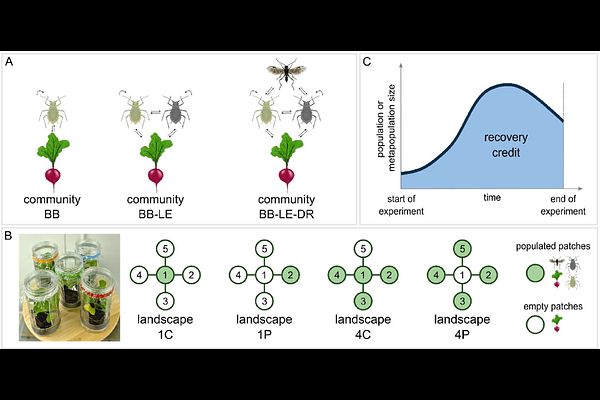The roles of space and food web complexity in mediating ecological recovery

The roles of space and food web complexity in mediating ecological recovery
Gawecka, K. A.; Barbour, M. A.; Bullock, J. M.; Bascompte, J.
AbstractLandscape-scale ecological restoration is a key strategy for halting and reversing biodiversity decline. However, ensuring the long-term sustainability of restoration efforts requires guiding the recovery of complex ecological systems with many interdependent species at a landscape scale. Due to these challenges, our understanding of recovery trajectories remains limited. Using experiments and metapopulation models, we explore how the spatial configuration of communities and food web complexity jointly influence species recovery at different spatial scales. We find that the number and spatial placement of communities affects the colonisation of empty habitat patches, but does not influence population recovery in patches where communities are introduced. Food web complexity reduces the recovery of lower trophic levels, both at population and metapopulation scales. However, this negative effect may be partially mitigated at higher levels of food web complexity. Our results demonstrate that the joint consideration of spatial configuration and species interactions could enhance the effectiveness of restoration actions.